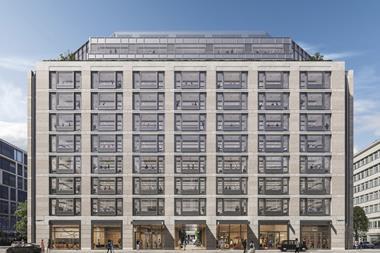Not all the reasons for the rapidly increasing number of London residential properties being bought by Chinese and Hong Kong investors since the EU referendum are immediately obvious.

Yes, exchange rates and mortgage rates are more favourable now - the pound has fallen 11% versus the dollar since 23 June and the cost of borrowing in the UK has never been cheaper. The Chinese renminbi (RMB) is also stronger at RMB8.70 to the pound today, compared with an exchange rate of RMB15.66 to £1 at the end of 2007.
But London is also popular with foreign buyers due to its investor-friendly policies. Since the 2008 global financial crisis, property in London has attracted investors from all over the world. There are no restrictions on foreign buyers and no ‘wealth taxes’, so property is freely transferable.
Buy-to-let in London makes sense. The average rent for a two-bed flat in London now stands at £1,785 per month - up 7.7% on last year. With the introduction of Crossrail in 2018, experts are forecasting rises of a further 16% in rents and as much as 25% in house prices.

The Brexit vote has not yet affected the UK’s housing demand/supply imbalance. Decades of failing to cope with the increasing population have led to a need for a considerable uptick in building activity, but some developers have slowed construction due to Brexit uncertainty. This is despite Greater London Authority assessing that up to one million more homes per year are required.
Diversification, wealth preservation and UK schools and colleges are also major factors drawing the Chinese in. The recent volatility of the Chinese stock market and devaluation of the renminbi has led them to regard London residential property as one of the world’s best stores of wealth. The market has proven its resilience, bouncing back strongly from the 2008 global financial crisis, with medium- to long-term investors making huge profits.
Boosted property values
Compared with China, the UK is seen by many as having a stable economy with a transparent political and legal system; London is renowned for being a world-leading financial centre and Europe’s centre for technology, with its many tech start-ups and Silicon Roundabout.
Education is another attraction. London is home to 40 universities - more than any other global city - four of which rank in the top 40 of the Times Higher Education rankings. The influx of Chinese students buying properties nearby in recent years has boosted property values.
Some Chinese investors are also lured by the chance of an attractive lifestyle in London and want to enjoy its rich culture.

In July 2014, Asian Business Port (ABP), founded by Chinese developer Xu Weiping, received the go-ahead to build London’s third financial and business district at the Royal Albert Docks. The £1.7bn project will create 30,000 jobs and generate £6bn for London’s economy and be used as an HQ for Chinese and other Asian companies to reach new markets across Europe.
Chinese investment in the UK in 2015 was £4bn, well up on £595m in 2008. Post-Brexit, I don’t see this trend changing, underscoring the importance that Chinese and other foreign investors attach to London as a gateway to the Western markets.
Shan Liew is a London-based Chinese-Malaysian property entrepreneur and the owner of 88 Estate Agency
































No comments yet